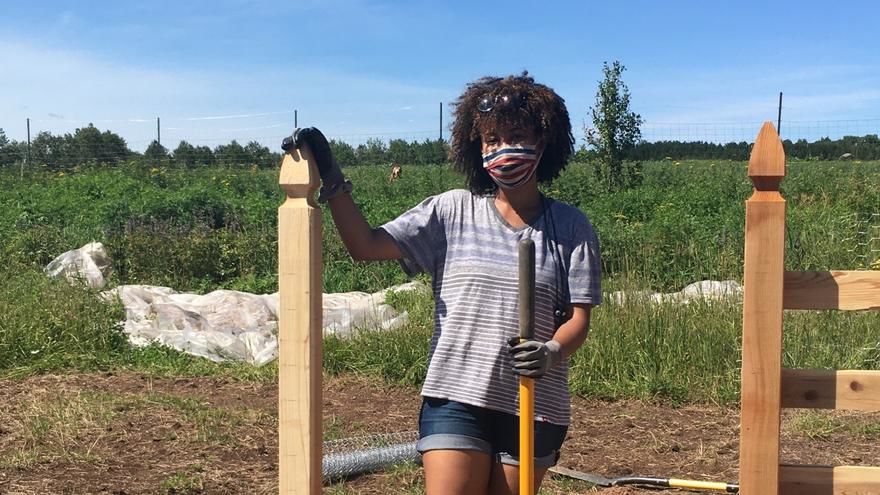
A new research project at the UMD Land Lab is not your average compost pile.
The UMD Land Lab has always had a compost pile, where overripe and underperforming vegetables have gone to decompose, getting tilled back into the soil the next year to help future plants thrive. It’s been a pretty straightforward process -- add material to the pile, mix it up once in a while, and wait for the finished product. A new interdisciplinary research project is about to change that up and is bringing new ways of thinking out to the farm.
Dr. Tsutomu “Shimo” Shimotori is an assistant professor in the Chemical Engineering program and has a research interest in bioconversion, which led him to collaborate with Dr. Teresa Bertossi, Director of the UMD Land Lab and assistant professor in Environment, Sustainability & Geography program. Shimo brought forth the idea of an “engineered” compost system to identify and utilize the most efficient system for creating compost on a small scale. Often, technology assisted composting is reserved for larger industrial applications that are processing huge volumes of material, like our Duluth local processor, WLSSD. Information about small scale applications is limited and the opportunities for research and education will have a direct impact on our community and local farmers.
Two students have already been engaged in this research project through the construction of the compost bin structure, which occurred earlier this summer. Mealat Worku, an Environment and Sustainability major at UMD, said that working on this project has definitely given her something that her regular classes haven’t. Having never built something on her own, she grinned when she mentioned that “you can’t learn how to use a staple gun in class”. Anna Totsch, a Biology and Biochemistry major at the College of St. Scholastica, has also worked on building the compost bin structure. Anna is interested in soil conservation and has been “conducting soil tests to figure out how we can organically treat soil problems”.

With the structure now built, the project is set to start making compost piles using plant waste from this year’s harvest. There will be a variety of piles testing different variables: a control pile, an aerated pile, a pile using only finely chopped ingredients, a heated pile, and piles with different turning frequencies. Piles will be regularly monitored to track the speed of compost creation and the quality of the resulting compost will be measured through the UMD Soil Lab and/or Chemical Engineering’s lab.
This project is being supported through a UMN Institute on the Environment mini-grant, which funded student stipends, construction materials, and will supply the extra equipment to chop materials, aerate, and heat piles. Check out the UMD Land Lab for regular updates of what is happening on the farm!